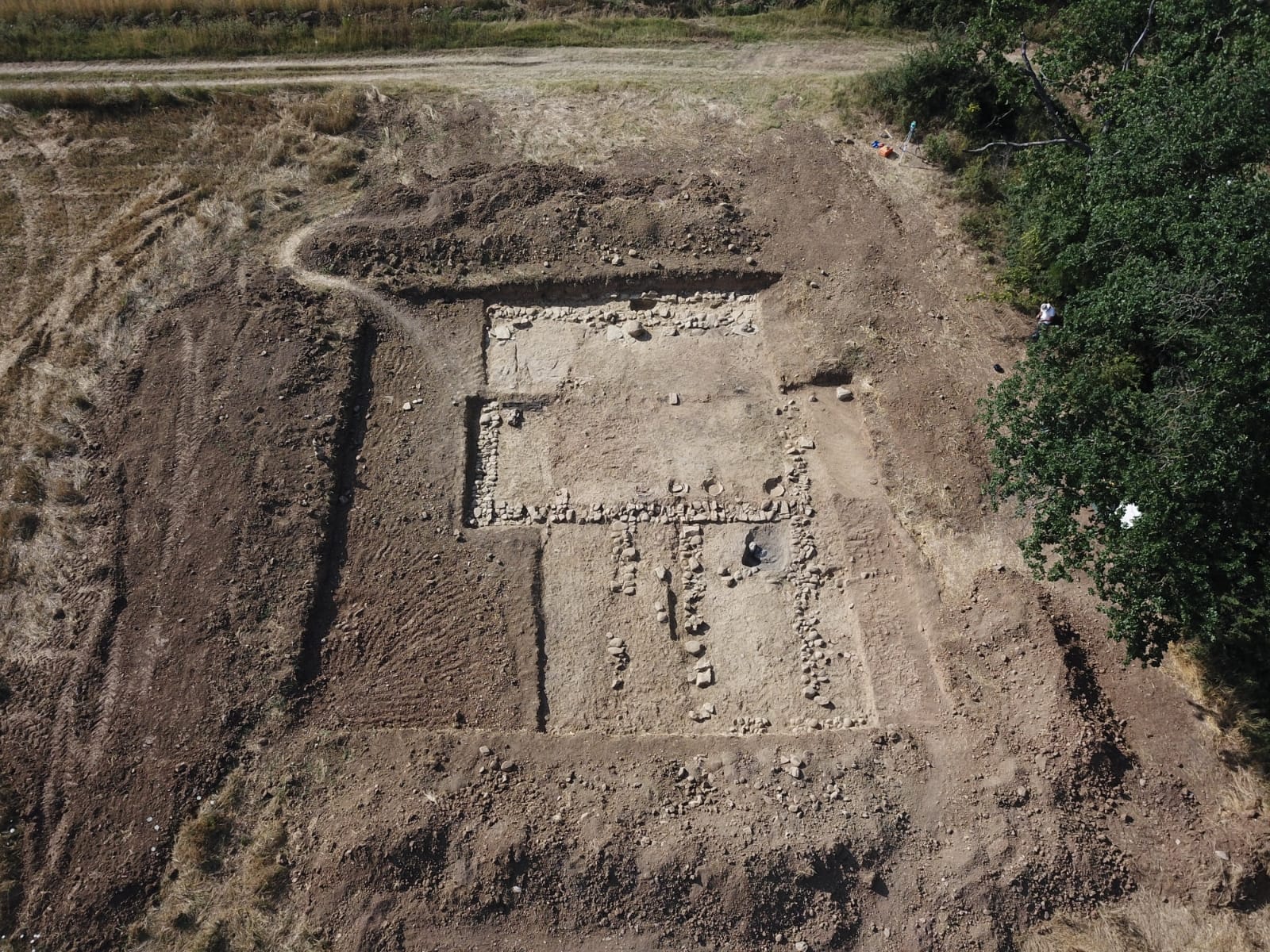Lilli bears a dark, playful, and witty sense of humor that draws laughter from all those around her. Soon after we met she would bring me care-package chocolate cookies, hug me close, and show me silly saved photos on her phone over her beloved lemon gelato as if we had been long friends; yet, Lilli’s sweet charisma is simultaneously impenetrable, and while she is vocal and direct, it is possible to feel distanced from what is going on within her mind. In fact, she humorously admitted that even she cannot fully explain herself–as we spoke, she was unable to give any reasons for her little quirks such as her obsession with “little things,” a disposition that has led her to collect miniature hotel shampoo bottles and, on the other hand, helped her to find a small ceramic votive at Podere Cannicci, appreciating it by cupping it with her thumb before realizing its full significance. Lilli is simultaneously as impenetrable and inviting as the forests that she feels at home in, preferring such environments to water and sandy beaches in a way that is fitting to her work under the canopies at Castellaraccio.
Perhaps this density comes from her interest in things others find to be morbid—the twenty-year-old, senior-year Human Biology and Anthropology double major (with a minor in Environment and Health) at Michigan State University is not only fascinated by the World Wars, hoping to identify soldiers’ bodies and return them to their families in the future by working, after completing her master’s degree and PhD, for the DPAA in a way that connects her interest in history and in science, but she likewise has worked at a morgue after meeting someone who volunteers there last year. At the same time, Lilli does not see the subjects of her labor as gruesome; rather, she sees the good that she is able to bring, knowing that “it’s a job that somebody’s got to do,” and likewise embodies this quality of care in her leadership skills, falling easily into the team-oriented, directing role that defined her substantial experience playing lacrosse. Although the time-consuming and individualized nature of college assignments have led her, in a positive way, to be less concerned with the work of others than her own obligations, production, and goals, her status as the “team player” that she has always been has expressed itself both on site, with Lilli becoming “defensive leader” again by proposing collaborative and efficient working situations with ease, and off, with her taking up the reigns of organizing a weekend trip to Florence that several students this year were a part of.
Further, her attraction to her work and study, as is evident by her goals, is based in her inherent kindness and desire to help others. Knowing nothing about forensic anthropology beyond television until encountering Professor Fenton, framed by a table covered with bones, at a study abroad fair and promptly enrolling in his London study abroad program, Lilli realized that she wanted to follow this field for the rest of her life—bringing her background in hard science to offer fresh perspectives to her anthropology peers. As a butterfly came to grace our presence, catching her attention and deep appreciation as it floated past in omen-like fashion, Lilli recounted how she hopes to reunite people with the ones that they have lost and to do justice to those who have died, to do for others what she would like to be done to her: “If I die, I want somebody to…find out what happened to me…I think about it a bit more like helping them…[and] help[ing] the living people.” Moreover, dealing with the dead has had no negative impact on her relationship to the living: Although she has a keener eye for behavioral outcome, able to see what lies within a person and the impacts of various actions on the human body, Lilli has never had to detach herself to not be affected by her work. “I still think it’s horribly sad,” she told me, but she maintains a realistic perspective: “We’re all going to die; we’re all just…flesh and bones, but let’s have fun.” In this way, she is both able to love life and to not fear death—embracing in full her fondness for reading, driving through the night, and the laughter of every moment with her friends as they sit and enjoy The Da Vinci Code, only getting ‘spooked’ by horror movies, mazes, and the momentary worry of reanimation when working in the morgue. In her easy-going embrace of existence, Lilli “just like[s] doing random things with good people” and is able to both relax and adventure, whether it be hiking mountains or occupying the open road, and this paradigm allows her to awake every morning ready for the twists and turns of the coming day—as long as she can share them with the faces that she brightens all around her.
Text by: Elisabeth Woldeyohannes
Photo by: Emma Ramacciotti

